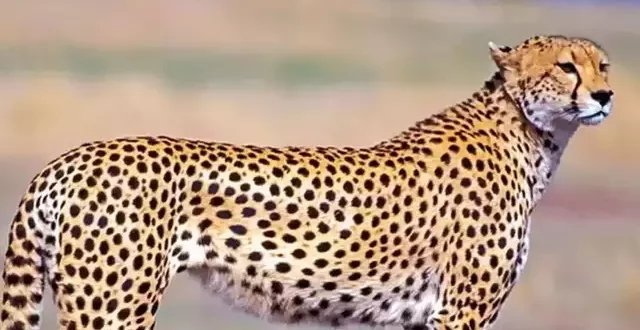New Delhi. Based on the initial experience at Kuno National Park in Madhya Pradesh, international experts involved in ‘Project Cheetah‘ (cheetahs) have advised the government to give priority to such young cheetahs for resettlement in India, which are less vulnerable to vehicles and humans involved in management work. Get used to being in the presence of. In a recent status report submitted to the government, experts emphasized that young cheetahs adapt more easily to their new environment and have a higher survival rate than older cheetahs Is. Young cheetahs are relatively less aggressive towards other cheetahs, which reduces the risk of death from inter-cheetah fighting.
Experts said in the report that vehicles involved in management and cheetahs accustomed to living in human presence help increase tourism value, including monitoring for health problems, stress-free veterinary medicine and simplifying management interventions. He also advised the government to mark places other than Kuno National Park in Madhya Pradesh for the settlement of cheetahs. He said that Kuno is about to be opened for tourism and that acclimatization of cheetahs to human presence could help in making the park a tourist attraction. Cheetahs were brought to Kuno in two groups from Namibia and South Africa.
Young cheetahs live longer when released
Young adult cheetahs adapt more easily to new environments and have higher survival rates than older cheetahs, experts said. Keeping in mind the cost of bringing cheetahs from outside and resettling them in India, experts underlined that young cheetahs live longer when released. African experts have also selected 10 cheetahs in the age group of 19 months to 36 months which can be made available for sending to India in early 2024.
20 cheetahs were brought to KNP in two groups
He emphasized that the death rate of cheetahs in Kuno National Park is unfortunate and has led to many negative news published and circulated in the media, but the death toll is within the normal parameters of wild cheetah rehabilitation. Nine cheetahs, including six adults and three cubs, have died in Madhya Pradesh’s Kuno National Park (KNP) since March. A total of 20 cheetahs were brought to KNP in two groups from Namibia and South Africa under the much awaited ‘Project Cheetah’. After the birth of four cubs, the total number of cheetahs had increased to 24, but after the death of nine cheetahs, this number has come down to 15 now.
It took 26 years to rehabilitate a cheetah in South Africa
Experts have drawn attention to the government’s initial difficulties in trying to introduce cheetahs to South Africa, saying nine out of 10 attempts had failed. He said that on the basis of these experiences, best practices of wild cheetah rehabilitation and management were established. South African wildlife expert Vicente van der Merwe said, “It took us 26 years to complete the cheetah rehabilitation in South Africa and we lost 279 wild cheetahs in the process. We can’t expect India to get it right with just 20 leopards. Such large losses are unlikely in India, but ‘Project Cheetah’ will undoubtedly experience more such losses.”
The report said that based on the experience of Africa, it can be seen that in the initial phase the number of 20 cheetahs may fall to five to seven, after which the population of cheetahs is expected to increase. Experts said the first cheetah cubs with a chance of surviving to adulthood are expected to be born in 2024.
The importance of ‘Supermom’ has also been underlined in the report. Female cheetahs brought from South Africa are called ‘supermoms’, which are more healthy and better in terms of fertility. Experts said that seven of the cheetahs brought to India are females and only one of them is expected to be a ‘supermom’. Experts advised the Indian authorities to identify other sites instead of Kuno to resettle the cheetahs.
 Indian Thought Latest News & Views
Indian Thought Latest News & Views



